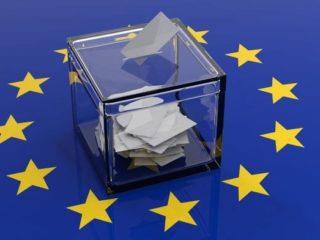By Giles Merritt
What are this month’s European elections for? Much is made of them by politicians and the media as key to Europe’s future, but few voters know what they are being asked.
Elections to the European Parliament have been fuzzy since 1979, when its members stopped being mere delegates. Yet far from exciting public interest, EU-level democracy has been a damp squib. European election turnouts have fallen from a high of 62% of eligible voters to 42% in 2014. The lack of public interest probably reflects the absence of clear issues.
Various interest groups do have a stake in this month’s elections, but these are of little direct concern to citizens.
The most visible group is the senior politicians hoping the outcome will boost their own chance of stepping into one of the EU’s top jobs. Along with them, political parties across the spectrum are jostling for power and influence over the next five-year term of EU spending and rule-making.
More important perhaps, European elections are chiefly crucial to national politics. Mainstream parties are anxious to see whether the tide of populism is turning. Until the socialists’ success in Spain’s recent general election, the smart money had been on sweeping gains by right-wing nationalists producing enough populist MEPs to re-landscape the EU political scene.
None of this is close to voters’ hearts as it doesn’t address the major challenges bearing down with accelerating speed on Europe. Quite apart from the overwhelming threat of climate change, there’s a long list of structural changes threatening Europeans’ living standards and wellbeing. These have been to a large extent avoided as election issues by EP candidates.
So what issues do people worry about? Research on behalf of the European Commission last year highlighted five main areas, but they’re where EU policymaking has little clout. In ranking order, they were: immigration; terrorism; economic prospects; member states’ national finances and unemployment. The EU either has no competence in these, or is frustrated by member governments’ fierce disagreements.
This doesn’t mean the Brussels institutions and above all the European Parliament have no voice. If they chose to do so, they could be doing much more to alert public opinion to the serious dangers that will dominate our politics over the years ahead.
These game-changing shifts are well known yet widely ignored by politicians because in the short term they cost votes. Ageing and the threat of ’generation wars’ between pensioners and under-privileged younger taxpayers can only be met by radical reforms of tax and social benefits. These will be unpopular and resisted by many voters, not least by the third of Europeans who within 20 years will be over-65s.
Then there’s stagnant productivity and Europe’s declining global competitiveness. Macro-economic shifts may be invisible to most voters, but they signal weaker economies and lower living standards. EU officialdom has long been warning of this - and urging safeguarding the euro through greater cohesion between richer and poorer nations. These warnings have largely fallen on deaf ears.
That’s where would-be MEPs come in. They should be campaigning on the difficult choices facing Europe’s electorates. Politics is always about least-worst solutions to society’s problems, and that is especially true when demographic disruption looms so menacingly.
When the worth of European integration and the EU project itself is under fire, it’s hard for parliamentary candidates to highlight such daunting and unwelcome issues. Nevertheless, the solutions to our 21st century ills are more Europe, not less.
*First published in friendsofeurope.org




 By: N. Peter Kramer
By: N. Peter Kramer
